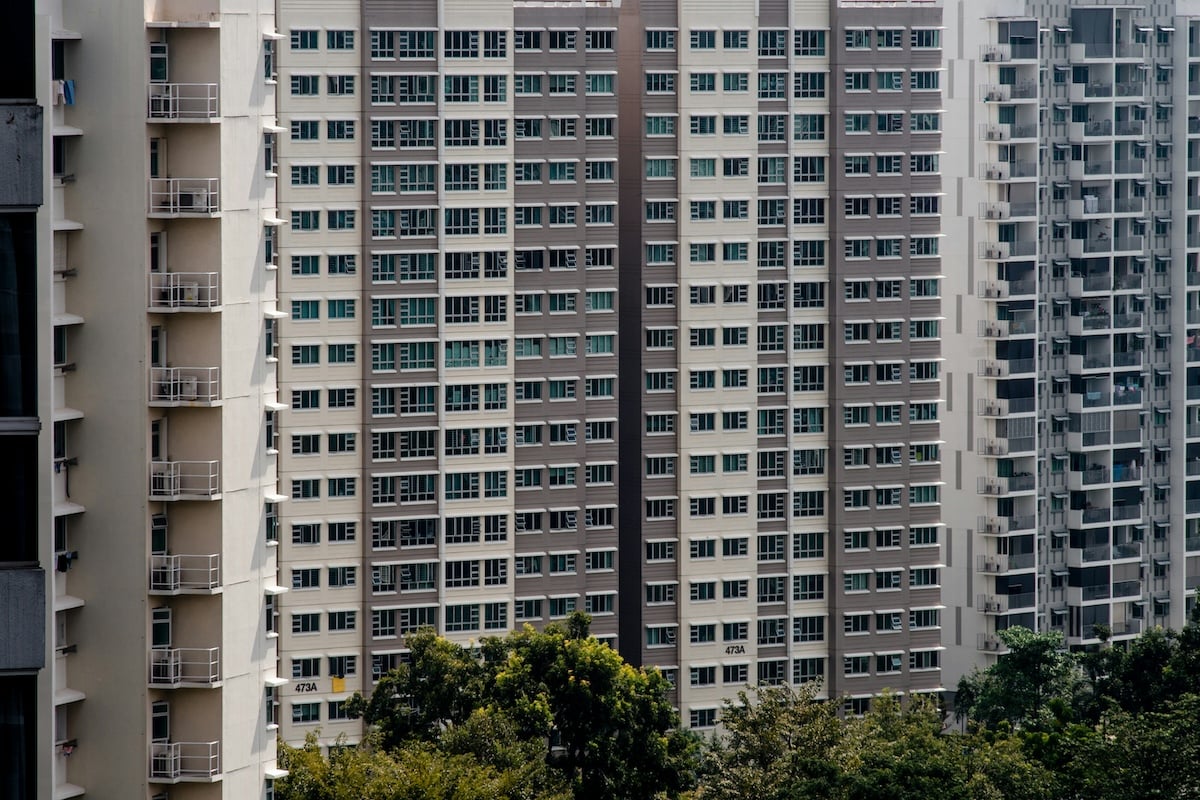Singapore’s housing market is constantly evolving, and the Housing and Development Board’s (HDB) resale segment operates on a distinct “willing buyer, willing seller” model. This affords significant pricing flexibility, as there are no government-imposed caps or floors.
However, as million-dollar HDB transactions become more common, concerns are being raised about the potential long-term effects of this unrestricted pricing on market stability and affordability.
Understanding no price limit in the HDB resale market

The Singaporean HDB resale market stands out for its unique lack of price controls. This policy is intended to accurately reflect the current market value of flats, as determined by mutually agreed upon negotiations between buyers and sellers.
Check the updated resale prices for HDB flats here: HDB resale prices (updated Apr 2024)
In contrast to other real estate markets around the world, which may set limits on prices to prevent inflation or maintain affordability, HDB flats can be sold for any amount that the market can support, or that a seller is willing to accept.
While this system allows for a dynamic and flexible market, it also presents challenges and implications.
Impact of no price limit on market prices

The lack of a price ceiling has resulted in notable fluctuations in resale prices. One notable example is the recent sale of a four-room flat in Tampines for an exceptionally low price of S$100,000, while comparable units in the same vicinity typically fetch six times that amount.
Conversely, the increasing occurrence of million-dollar resales in prime neighbourhoods illustrates the extent to which the market can surge in the absence of regulatory limitations. Such fluctuations may create an impression of market volatility, which could potentially impact the expectations and actions of both buyers and sellers.
Read about our cover of the million-dollar HDB resales: Million-dollar HDB resale flats: What’s the hype and how it’s impacting you?
The rise of million-dollar HDB resales
Over the past few months, there has been a significant rise in the number of HDB transactions surpassing S$1 million. In March alone, there were 61 such deals, with mature estates such as Toa Payoh and Bukit Merah leading the way.
Here’s another take on the million-dollar HDBs being sold: Navigating the surge of million-dollar HDB resale flats in Singapore
These sought-after areas offer larger spaces and enhanced amenities, leading buyers to pay a premium. As a result, this trend is shaping the overall perception of HDB resale value, indicating that premium prices are becoming more commonplace.
Long-term effects on buyers and sellers
In areas with high demand, sellers can reap significant financial gains, but this can create obstacles for first-time buyers who struggle to enter the market.
Policymakers face the task of addressing these disparities to prevent lower-income families from being marginalised and to uphold the original intention of HDB as affordable housing for all.
In addition, policies such as the Central Provident Fund (CPF) usage regulations and loan eligibility criteria require ongoing adaptation to ensure fairness and equity for all potential buyers.
Government and market responses
To address the issue of escalating prices and the risk of a market bubble, the Singapore government has taken some cooling measures. These measures involve cutting back on the number of Build-to-Order (BTO) sales exercises and introducing a waiting period for private homeowners interested in purchasing resale flats.
These measures aim to manage price hikes and enhance market stability. In the future, the government’s diligent observation and flexibility in policy-making will play a pivotal role in sustaining a well-balanced housing market.
Conclusion

The HDB resale market in Singapore is unique in its unrestricted pricing mechanism, allowing for a true reflection of market dynamics. However, this system has led to significant price variability and a rising threshold for what constitutes affordable housing in the long term.
As the market evolves, including the increase in million-dollar flats, it remains uncertain how policies will adapt to ensure accessibility and affordability for all Singaporeans. The HDB is a cornerstone of the nation’s social fabric, and the ongoing debate about price limits is not just about numbers and transactions; it’s about the sustainability of a housing model that lies at the heart of Singaporean society.
As we navigate this complex landscape, striking a balance between market freedom and regulatory oversight will define the future of our public housing system.
This article is a product of 99.co and is based on information gathered from various sources, including AsiaOne and TodayOnline. These sources are used in good faith to provide valuable insights. The source of the referenced content is duly credited and we recommend readers refer them for a comprehensive understanding of the topic. 99.co is not responsible for errors, omissions, or consequences from using this information.
The post Does having no price limit affect HDB resales in the long run? appeared first on .

